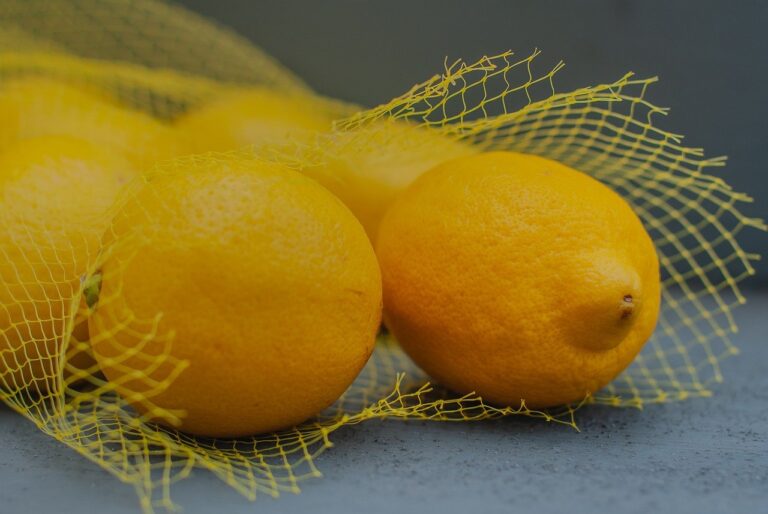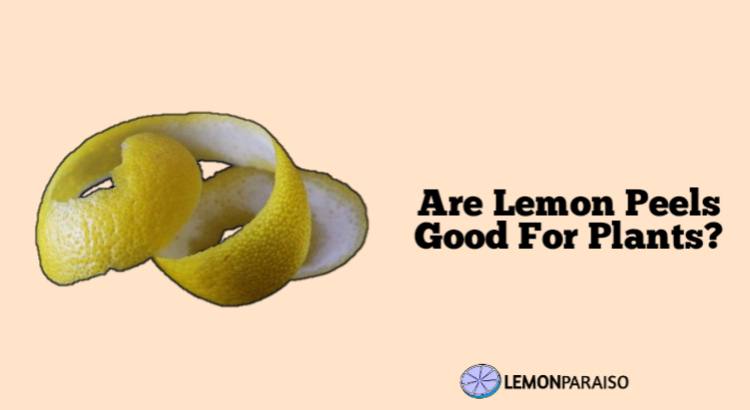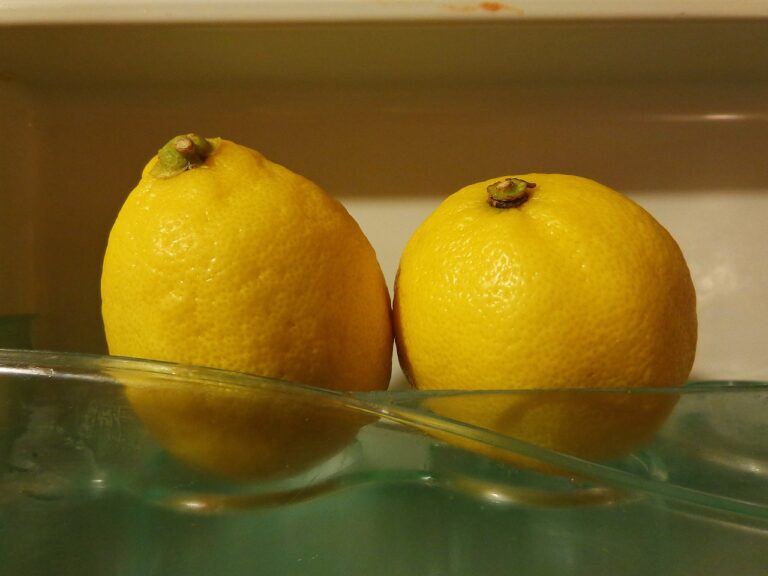Organic Fertilizer For Lemon Tree
Organic fertilizers are a natural and safe way to provide essential nutrients to lemon trees. They improve soil health and promote sustainable gardening practices. There are several types of organic fertilizers that can be used, including compost, manure, blood meal, bone meal, and Epsom salt. Each type provides different benefits and should be used in different ways.
Organic Fertilizer For Lemon Tree
Compost
Compost is made from decomposed organic materials such as leaves, grass clippings, and food scraps. It can be made at home or purchased at a gardening store.
Compost is an excellent source of nutrients for lemon trees, including nitrogen, phosphorus, and potassium. It also helps to improve soil structure and drainage.
To apply compost to a lemon tree, spread a 2-3 inch layer around the base of the tree, being careful not to pile it against the trunk. Mix the compost into the top few inches of soil, and water well. Compost can be applied once a month during the growing season.
Manure
Manure is made from the excrement of animals such as cows, chickens, and horses. It is a rich source of nutrients for plants, including nitrogen, phosphorus, and potassium. Manure can be used as a fertilizer for lemon trees. It helps to improve soil fertility and structure.
To apply manure to a lemon tree, mix it into the soil around the base of the tree, being careful not to pile it against the trunk. Manure should be well-aged (at least 6 months) and composted before using. Apply it once every three months during the growing season.
Blood Meal and Bone Meal
Blood meal is made from dried, ground blood, and bone meal is made from ground, steamed animal bones. Both are rich in nitrogen, phosphorus, and other nutrients. Blood meal and bone meal are great sources of slow-release nitrogen, which is essential for leafy growth and overall health of lemon trees. They also help to improve soil structure and fertility.
To apply blood meal and bone meal to a lemon tree, mix them into the soil around the base of the tree. The recommended rate is 1-2 tablespoons per square foot of soil. It’s always better to check the package instructions for the specific rate as they may vary. Apply it once every three months during the growing season.
Epsom Salt
Epsom salt is made from magnesium sulfate, a naturally occurring mineral. It is not a traditional fertilizer, but it can be beneficial for lemon trees.
Epsom salt can help improve the absorption of other nutrients by the tree, as well as help in the development of strong cell walls, which is essential for the tree’s growth and overall health.
To apply Epsom salt to a lemon tree, mix 2 tablespoons of salt into 1 gallon of water and apply it to the soil around the base of the tree. This solution can be applied every 6-8 weeks during the growing season. It’s always better to check the package instructions for the specific rate as they may vary.
What Is The Best Natural Fertilizer For Lemon Trees?
The best natural fertilizer for lemon trees is compost or well-rotted manure, as they provide a slow-release of essential nutrients such as nitrogen, phosphorus, and potassium. These organic fertilizers also improve soil structure and increase the tree’s ability to retain moisture.
Additionally, adding a layer of mulch around the base of the tree helps to conserve moisture and suppress weeds, which reduces the competition for nutrients. It is recommended to apply the fertilizer in spring and fall, and to avoid over-fertilizing, which can lead to excessive leaf growth and reduced fruit production.
How Do You Fertilize A Lemon Tree Organically?
Organically fertilizing a lemon tree involves using natural sources of nutrients such as compost, well-rotted manure, or other organic fertilizers. To do this, spread a 2-3 inch layer of compost or manure around the base of the tree, being careful not to let it touch the trunk.
In spring and fall, also add a slow-release organic fertilizer following the manufacturer’s instructions. To ensure optimal nutrition, it’s important to soil test every 2-3 years and adjust the type and amount of fertilizer accordingly.
Additionally, maintaining proper soil moisture and using mulch around the base of the tree can help support overall tree health and reduce the need for additional fertilizer.
How Do You Make Homemade Lemon Tree Fertilizer?
Homemade lemon tree fertilizer can be made by mixing together equal parts of well-rotted compost or manure, worm castings, and alfalfa meal or kelp meal. These ingredients provide a balanced blend of nutrients, including nitrogen, phosphorus, potassium, and trace minerals, that lemon trees need for healthy growth and fruit production.
To use, spread a 2-3 inch layer of the fertilizer around the base of the tree in spring and fall, and water it in well. To maintain soil health and reduce the need for fertilizer, it is also recommended to regularly add compost or other organic matter to the soil and mulch around the tree to conserve moisture and suppress weeds.
What Is A Natural Nitrogen Fertilizer For Lemon Tree?
A natural nitrogen fertilizer for a lemon tree can be made from organic materials such as compost, blood meal, or fish emulsion. These organic fertilizers provide a slow and steady release of nitrogen, which is essential for the growth and health of the lemon tree.
In addition, these natural fertilizers improve the soil structure and enhance soil biology, which promotes better root development and overall plant health. It’s recommended to apply organic fertilizers to the soil around the base of the tree, following the manufacturer’s instructions for the appropriate amount and frequency of application.
Conclusion
Organic fertilizers provide a natural and safe way to provide essential nutrients to lemon trees. They improve soil health and promote sustainable gardening practices. Compost, manure, blood meal, bone meal and Epsom salt are some of the best organic fertilizers to use for lemon trees. Each type provides different benefits and should be used in different ways.
It is important to always follow the instructions on the fertilizer packaging and consult with a professional if unsure. It’s also important to not over-fertilize, as this can cause damage to the tree. With proper care and fertilization, your lemon tree will thrive and provide you with delicious, healthy lemons.





